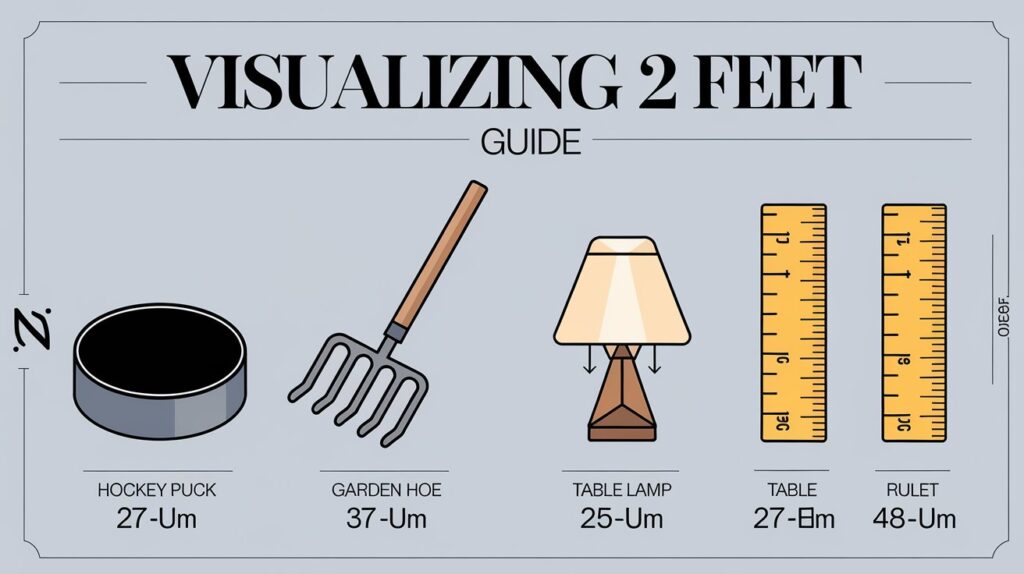Ever wondered just how long 2 feet really is? You’ll find this handy measurement everywhere, from your home to the office.
Let’s dive into the world of foot measurement and discover how this common length shows up in everyday items.
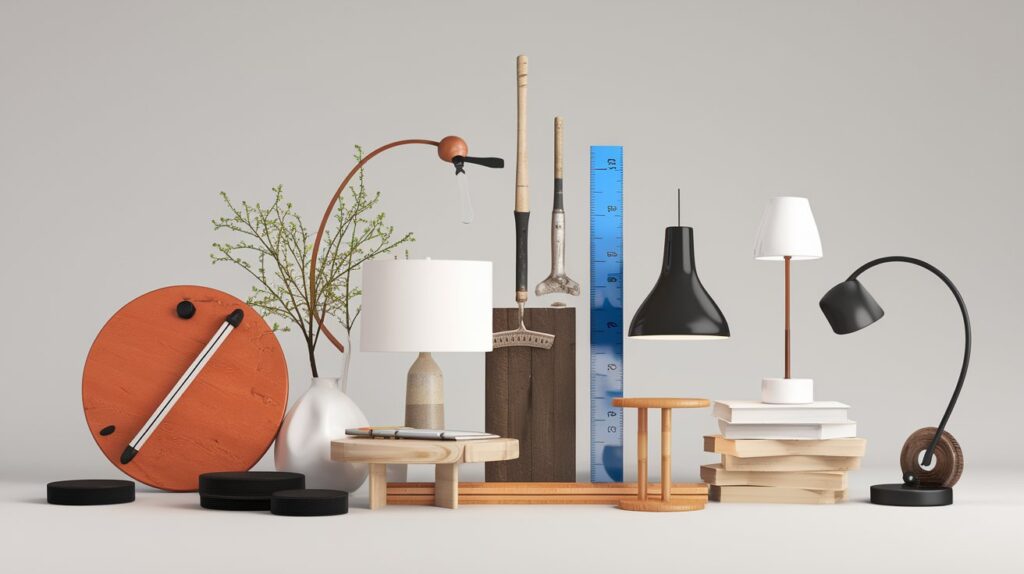
How Big or Tall is 2 Feet?
When you’re talking about 2 feet, you’re looking at exactly 24 inches or 61 centimeters. As Abdullah Saleem noted on December 26, 2024, this standard measurement equals about two-thirds of a yard. It’s a distance that’s been helping folks measure things since the Mid-19th century.
In today’s world, we use 2 feet as a common reference point for everything from furniture design to construction work. Whether you’re in your workshop or garage, understanding this measurement makes life a whole lot easier.
How Long is 2 Feet?
15 Common Items That Are Measured 2 ft Easily
Hosted by John & Kapela
Interactive Discussion & Measurement Guide
Understanding 2 Feet in Context
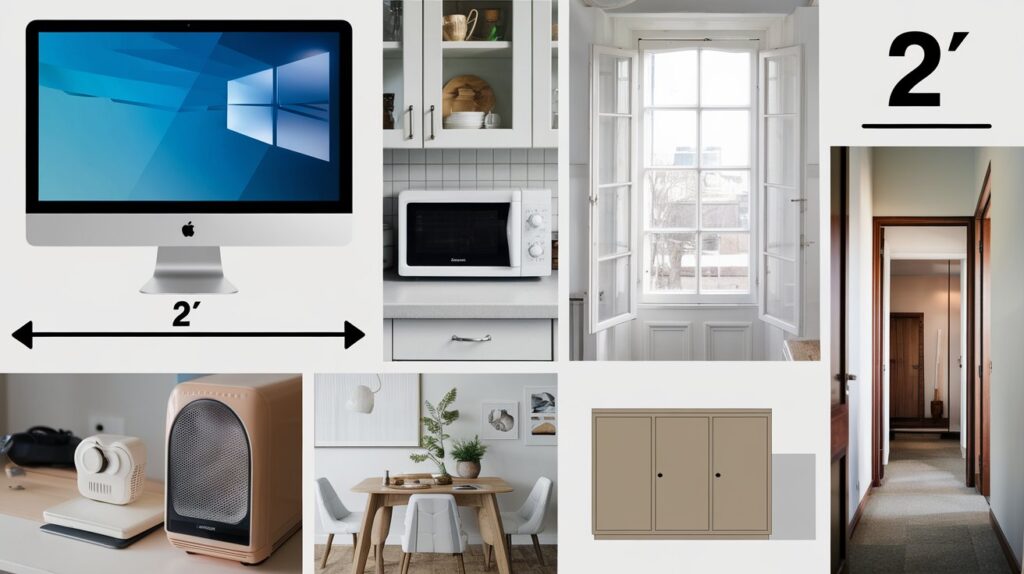
Think about the space between your computer screen and your eyes – that’s often about 2 feet. This length measurement shows up naturally in our daily lives, from the height of your desk to the width of your doorway.
Let’s look at a quick conversion guide:
| Unit | Equivalent to 2 Feet |
|---|---|
| Inches | 24 inches |
| Centimeters | 60.96 cm |
| Yards | 0.666667 yards |
| Meters | 0.6096 meters |
How Long Is 36 Inches? 18 Amazing Objects That Are 36-Inch Long
Why Comparing 2 Feet to Common Items is Helpful?
Understanding spatial awareness through familiar objects helps us grasp measurements better. When you’re planning DIY projects or arranging furniture, having these visual references at hand makes everything click.
Whether you’re in the classroom or setting up your home, these comparisons give you instant mental pictures. No need to pull out a measuring tape every time!
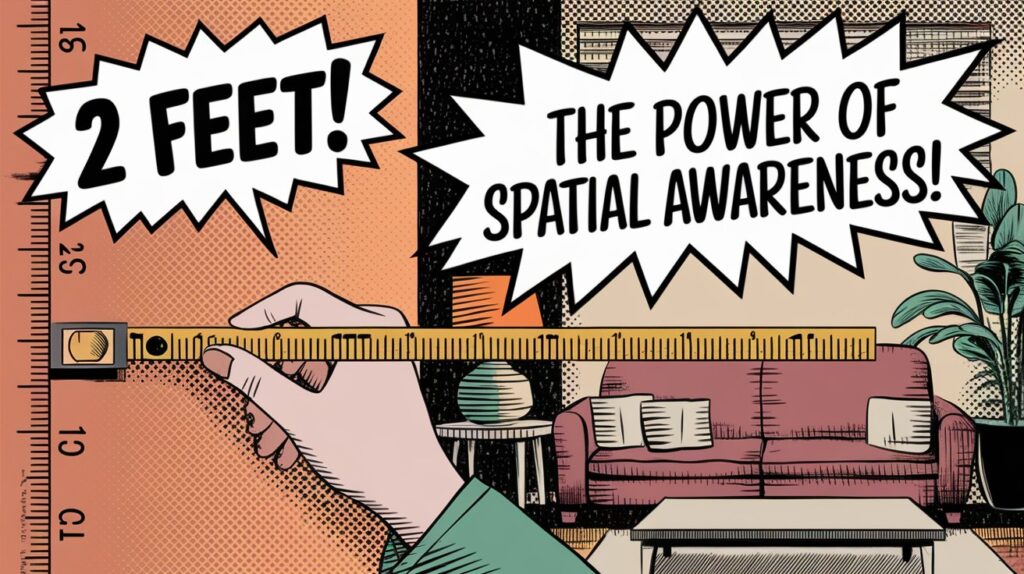
Common Items Measuring 2 Feet
| Common Item | Exact Measurement | Location/Use |
|---|---|---|
| Hockey Pucks (8 stacked) | 24 inches | Ice Rink |
| Garden Hoe | 24 inches | Garden Shed |
| Table Lamp | 24 inches | Living Room/Study |
| Rulers (2 combined) | 24 inches | Classroom/Office |
| Subway Sandwiches (2) | 24 inches | Restaurant |
| Golden Retriever (shoulder height) | 22.5 inches | Home/Park |
| Bowling Pins (5 in line) | 23.75 inches | Bowling Alley |
| Printer Paper (2 sheets lengthwise) | 22 inches | Office |
| California King Bed (1/3 width) | 24 inches | Bedroom |
| Standard Guitar Neck | 24 inches | Music Room |
1. Eight Hockey Pucks
Imagine stacking eight official hockey pucks together. Each puck, measuring 3 inches in diameter and 1 inch in height, creates a perfect 2-foot tower when combined. Professional pucks, designed for ice hockey, weigh between 5.5 to 6 ounces (or 154 to 168 grams). When you line these black rubber discs up vertically, they give you an exact measurement of 24 inches.

2. The Handy Garden Hoe
A standard garden hoe typically measures 2 feet from handle end to blade tip. This essential gardening tool found in every shed helps with weeding and soil preparation. The length isn’t random – it’s designed to give you perfect leverage while keeping you at a comfortable working distance from the ground. Traditional models used in agricultural work maintain this length for optimal efficiency.
3. The Standard Height of a Table Lamp
Most decorative table lamps stand 2 feet tall, providing ideal illumination for reading and ambient lighting. This height works perfectly for most home decor settings, allowing the light to spread evenly whether placed on a side table or desk. The standard measurement includes both the base and lampshade, creating balanced proportions for your home.
4. Two Rulers
Place two standard measuring tools end to end, and you’ve got an exact 2-foot length. Each ruler measures 12 inches, making them perfect measurement references in any classroom or office. These tools, marked in both inches and centimeters, give us a precise 24-inch span when combined.
| Properties | Specifications | Details |
|---|---|---|
| Standard Length | 12 inches (30.48 cm) | Two rulers combined = 24 inches (2 feet) |
| Common Materials | Plastic, Wood, Metal | Durable construction for everyday use |
| Primary Use | Educational Institutions | Teaching and measurement demonstrations |
| Measurement Units | Dual Scale | Inches and Centimeters markings |
| Typical Width | 1.5 inches (3.81 cm) | Comfortable grip and handling |
| Average Weight | 1-2 ounces (28-56 g) | Lightweight and portable |
| Common Features | Metal Edge, Cork Back | Enhanced durability and non-slip use |
| Storage | Desk/Drawer | Easy to store and access |
5. Twice of Subway Sandwiches
Two footlong sandwiches from Subway – whether you prefer the classic BMT or Veggie Delight – measure exactly 2 feet together. Since their introduction, these fast food sandwiches have become a universal measurement reference. Each footlong measures precisely 12 inches, making two of them a perfect 2-foot span.
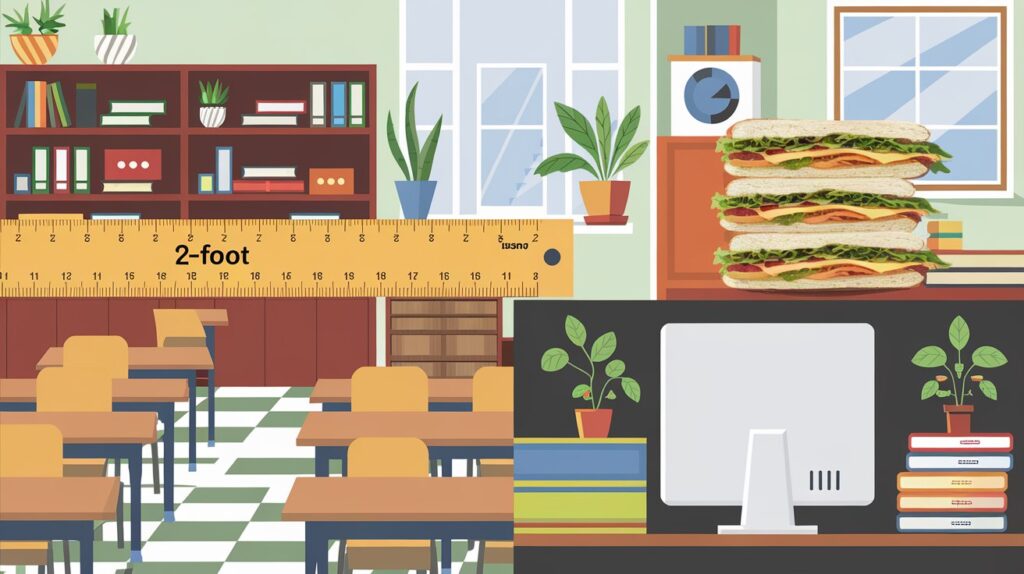
6. Golden Retriever Dog
A female Golden Retriever typically stands about 22.5 inches at the shoulder, making them just shy of 2 feet tall. This beloved dog breed serves as a perfect height reference, especially when they’re standing alert. Their shoulder height makes them an ideal canine measurement example.
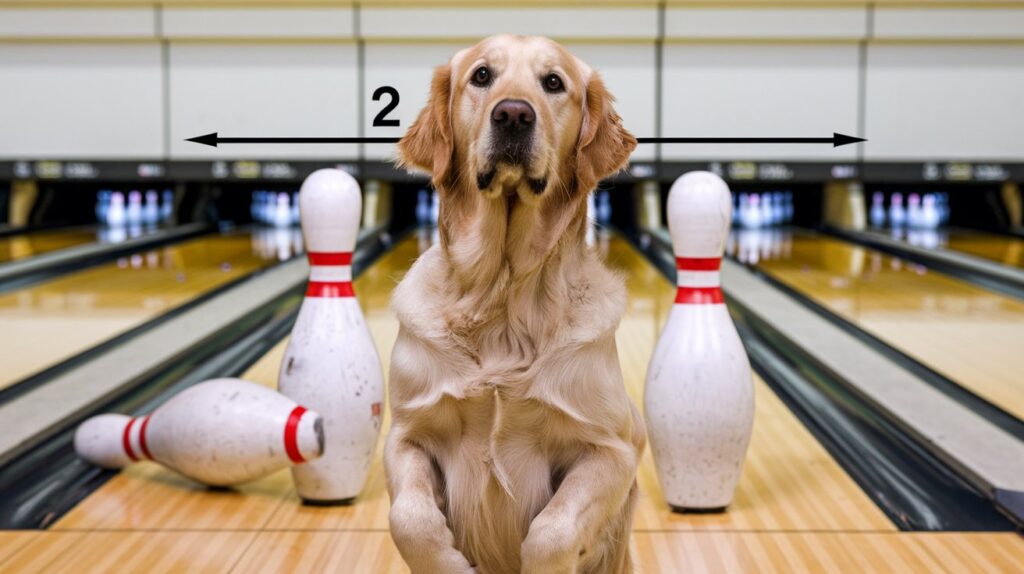
7. Width of Five Bowling Pins in a Line
In any bowling alley, five pins placed side by side span almost exactly 2 feet (23.75 inches). Each pin has a 4.75-inch diameter at its widest point. This game equipment setup provides a perfect visual reference for understanding 2 feet in width.
Also Like To Know This :
8. Two Sheets of Printer Paper
Stack two standard letter size sheets of printer paper end to end, and you’ll have 2 feet. Each sheet measures 8.5 by 11 inches, so two sheets lengthwise give you 22 inches – just shy of 2 feet. This office supplies measurement works great as a quick reference.
| Specification | Measurement | Additional Information |
|---|---|---|
| Single Sheet Length | 11 inches (27.94 cm) | Standard US Letter Size |
| Two Sheets Combined | 22 inches (55.88 cm) | Nearly 2 feet when aligned lengthwise |
| Sheet Width | 8.5 inches (21.59 cm) | Standard US Letter Size |
| Common Weight | 20 lb (75 g/m²) | Standard printer paper weight |
| Primary Use | Office/Home Printing | Documents, Reports, Letters |
| Paper Type | Multipurpose | Compatible with inkjet/laser printers |
| Surface Finish | Smooth | Optimal for print quality |
| Standard Packaging | 500 sheets/ream | Common office supply quantity |
| Brightness | 92-96% | Industry standard white paper |
9. One-Third the Width of a California King Bed
A California King bed measures 72 inches wide, making one-third of its width exactly 2 feet. This piece of bedroom furniture provides a perfect reference point for visualizing the measurement, especially when you’re arranging your sleeping space.
10. A Toddler’s Average Height at 12 Months
Around their first birthday, many toddlers reach the 2-foot mark in height. This important growth milestone typically occurs between 9-12 months, making it a memorable child development marker for parents.
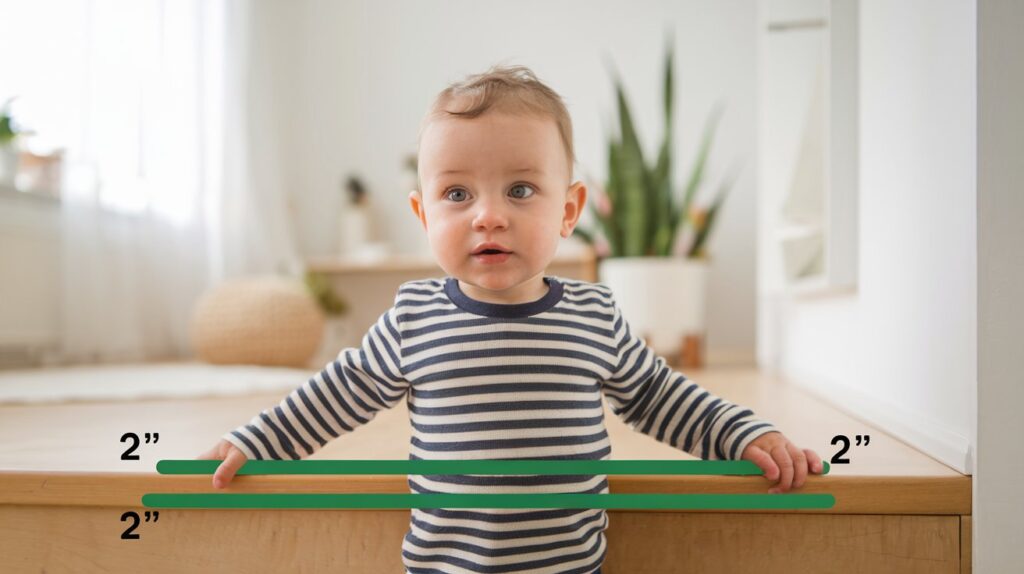
11. Standard Guitar Length
The neck of a standard acoustic guitar measures almost exactly 2 feet from the nut to the bridge. This musical instrument measurement has been standardized for optimal playability and sound production.
12. Average Microwave Width
A standard countertop microwave typically spans 2 feet in width. This kitchen appliance measurement has become standardized to fit comfortably on most kitchen counters while providing adequate cooking space.
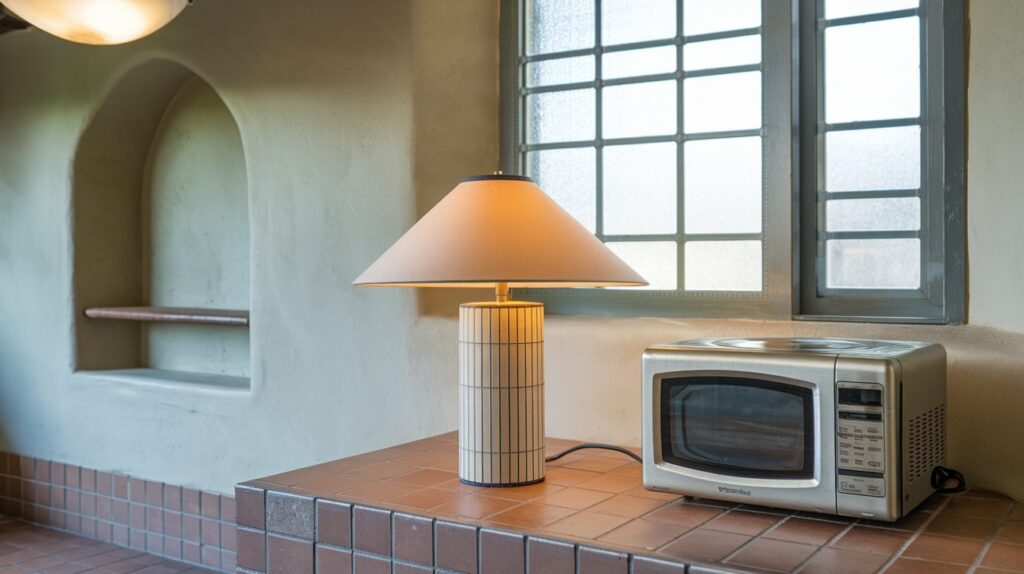
13. Computer Monitor Diagonal
Many desktop computer monitors feature a 24-inch diagonal measurement, which equals 2 feet. This screen size has become increasingly popular for both home and office use.
14. Standard Cabinet Height
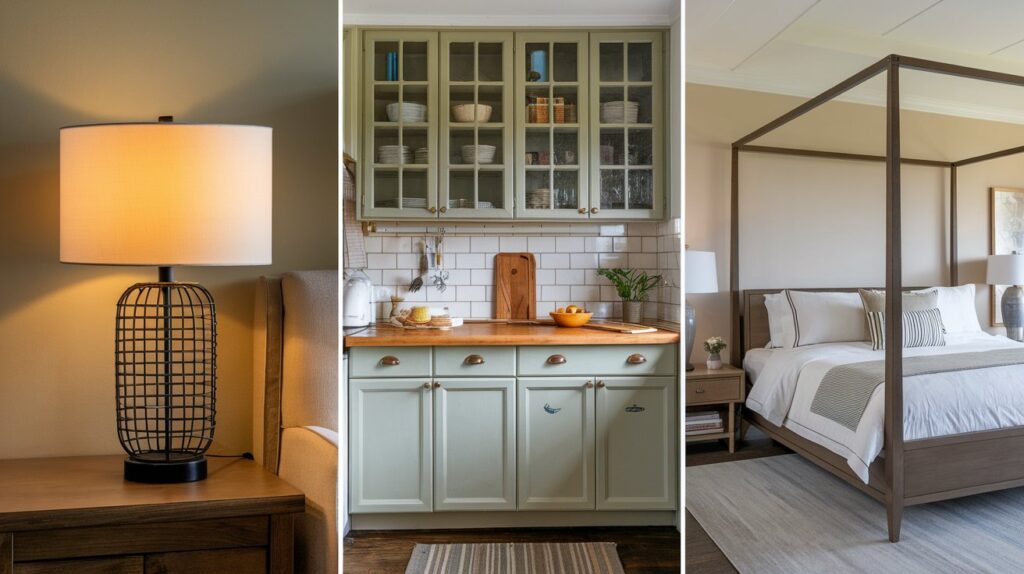
Base kitchen cabinets typically measure 2 feet from the floor to the countertop. This standard measurement ensures comfortable working height for most adults in the kitchen.
15. Window Width
A common residential window width measures 2 feet, making it a standard size for builders and manufacturers. This construction measurement helps maintain consistency in building design and materials.
Must visit :
Historical Context of 2-Foot Measurements
Dating back to ancient civilizations, the foot measurement has evolved significantly. What started as actual foot lengths in various cultures became standardized over time.
When Scotland and other nations began industrializing in the Mid-19th century, precise measurements became crucial. Today’s standard units help maintain consistency across industries.
| Time Period | Developments | Historical Significance |
|---|---|---|
| Ancient Egypt 3000 BCE |
Royal Cubit System First standardized measurement system based on human anatomy |
Influenced modern foot measurement development |
| Roman Empire 27 BCE – 476 CE |
Roman Foot (Pes) Standardized measurement across the empire |
Basis for many European measurement systems |
| Medieval Period 500-1500 CE |
Regional Variations Different foot measurements across kingdoms |
Led to trade complications and standardization needs |
| Industrial Revolution Mid-19th Century |
Standardization Movement Universal measurement adoption |
Critical for international trade and manufacturing |
| Modern Era 20th Century |
International Standards Precise definition of foot measurement |
Exactly 0.3048 meters established globally |
| Digital Age 21st Century |
Digital Integration Digital measurement tools and conversion |
Enhanced precision and accessibility |
| Current Usage Present Day |
Dual System Coexistence with metric system |
Still primary unit in US construction and aviation |
Practical Applications in Daily Life
From DIY projects in your garage to arranging furniture in your bedroom, understanding 2 feet makes countless tasks easier. Whether you’re hanging pictures or spacing plants in your garden, this measurement proves invaluable.
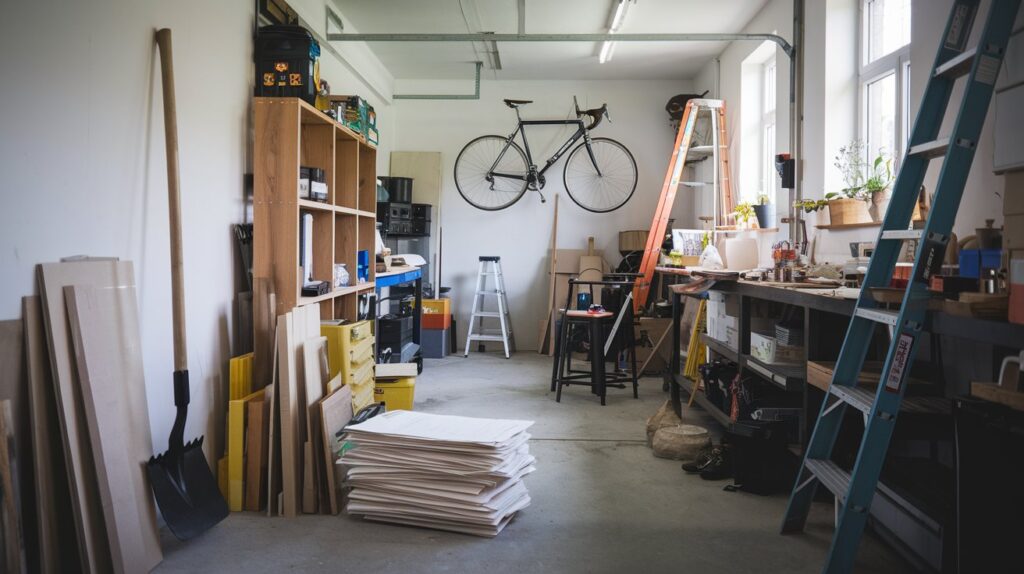
Tips for Estimating 2 Feet Without Tools
You can use your own body as a measuring tool. For most adults, the distance from your elbow to your fingertips approximates 2 feet. This trick comes in handy when you don’t have a measuring tape nearby.
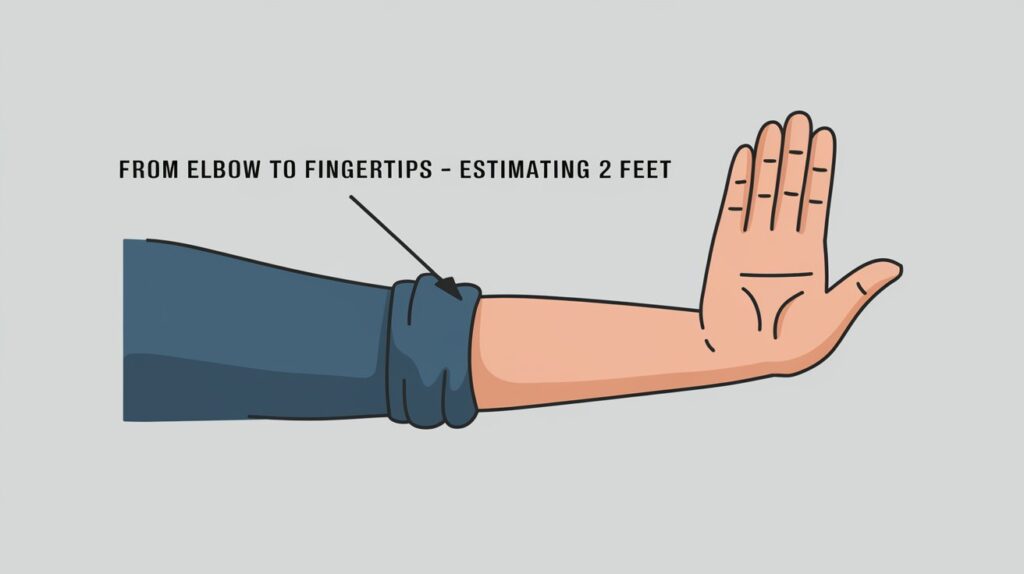
Learning Through Visualization
Children often grasp length measurement better through familiar objects. That’s why teachers in the classroom use items like rulers and paper to demonstrate 2 feet.
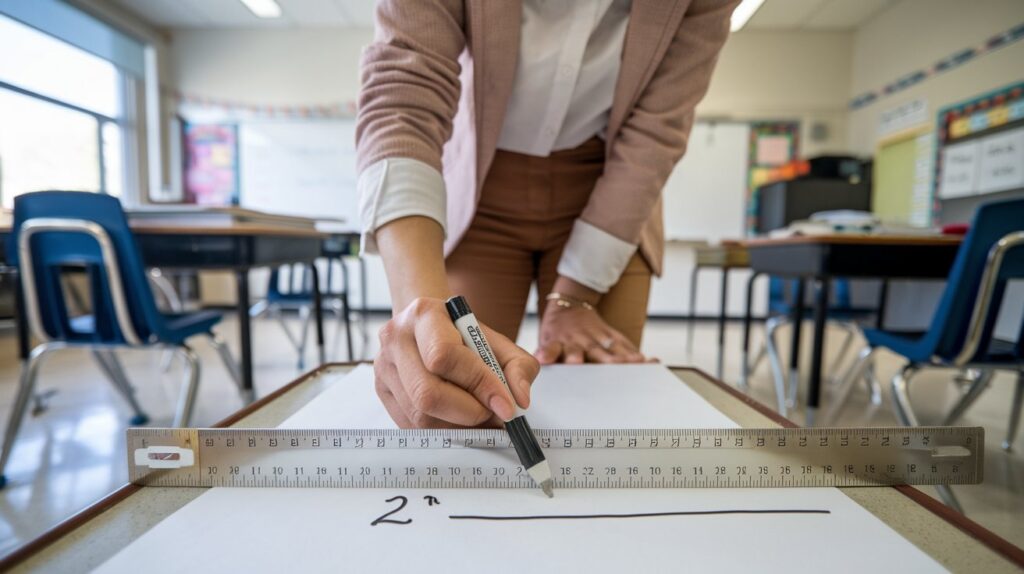
Common Misconceptions About 2-Foot Measurements
Some people confuse 2 feet with similar measurements like yards or meters. Understanding that it’s 24 inches or 60.96 cm helps avoid these common mix-ups.
Conclusion
Now you’ve got a solid grasp of just how long 2 feet is, thanks to these everyday examples. Whether you’re working on home improvements or helping kids with their homework, these visual references will serve you well. Remember, 2 feet is more than just a measurement – it’s a fundamental unit that shapes the world around us.
From hockey pucks to table lamps, you’ll start noticing this length everywhere you go. Keep these comparisons in mind, and you’ll never struggle with 2-foot measurements again!
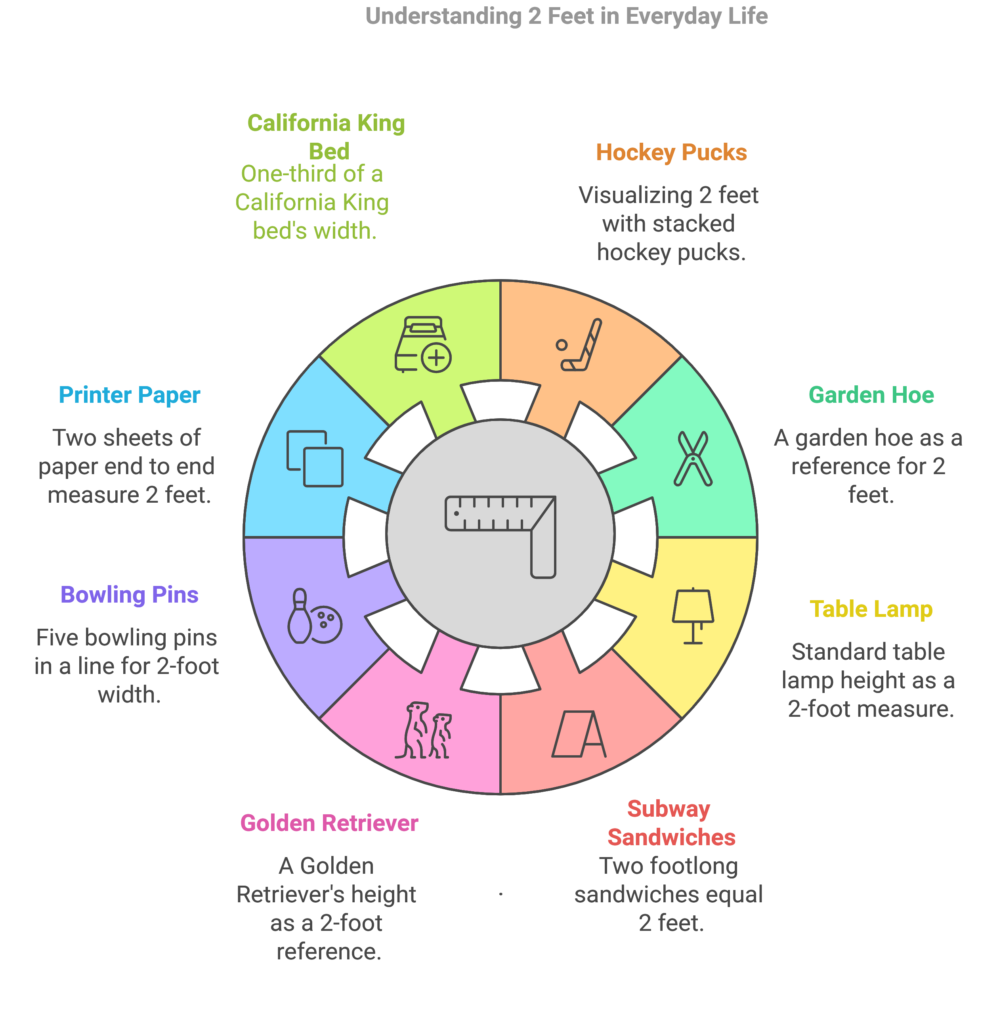
Must Explore :

John Smith and Kapela Rodriguez, engineering experts and creators of Measured Inches, transform complex measurements into simple, everyday examples. As mechanical and civil engineers, they combine their technical expertise to help readers visualize different units through practical comparisons. Their clear approach has made Measured Inches a trusted resource for understanding measurements.

